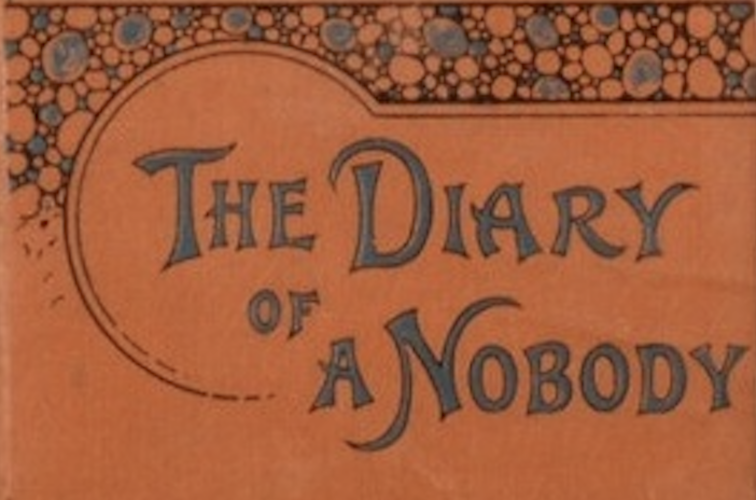I set myself the task for 2024 of reading and then writing about 25 pieces of London fiction I haven’t read before. This is the 25th and final article in the series. Applause, applause.
*
Today’s Holloway is part ruggedly urban, multi-ethnic and working class, part shabby-chic posh, the latter provided by the generation of media and built environment professionals who’ve been buying up and doing up terraced houses in Islington since the 1970s.
Some of the latter homes, handsome and spacious with servant quarters, were first inhabited by white collar gentlemen like Charles Pooter, a City clerk who catches a bus to work and who came to be revered in literary circles as an astute satirical portrayal of the late 19th century London petit bourgeois.
The Diary of a Nobody was written by the brothers George and Weedon Grossmith, with the latter also providing the illustrations. George, Islington-born and the elder of the two, was a well-known comedian, actor, composer and performer of Gilbert and Sullivan songs. Weedon, initially an art-school trained painter, also acted as well as writing and promoting plays. The pair were brought up in Holborn and St Pancras.
Their fictitious Pooter diary entries originally appeared in Punch magazine in 1888 and 1889, and were published in augmented form as a book in 1892. Critics and public alike were lukewarm for 15 years or more, until the literary establishment and other high-ups decided it was, after all, rather superb, and its reputation was secured for posterity.
The book is a comedy of social mores, its humour hingeing on Pooter’s small pomposities and deflating mishaps. He rebukes tradesmen about the quality of their goods and services only to find them less deferential than he thinks his due. He is excited by invitations to functions that turn out to be less grand than he had expected. Early on, he and three friends take “a good long walk over Hampstead and Finchley”. Seeking out-of-hours entrance to a pub, Pooter is barred when he reveals he is from Holloway, but his companions claim, falsely, to be from Blackheath and get in.
Further vexation takes the form of Pooter’s son William, who has decided he wishes to be known instead by his absurd middle name of Lupin and turns up at his old homes after being sacked by the bank he worked for in Oldham. Lupin, who likes music halls and falls in with a raffish troupe known as the Holloway Comedians, later moves to Bayswater, saying he had no wish to rot his life away in dull, respectable Brickfield Terrace.
Pooter perseveres in his life of affronted aspiration with amiable innocence, supported, indulged and occasionally ticked off by his wife Carrie. For someone who professes to prefer being at home, his circle of friends and acquaintances is geographically wide – the Jameses from Sutton, Mr Frenching of Peckham – and he gets about a bit himself, including popping in to Smirksons’, a draper in the Strand who, for unexplained reasons, decides one December to sell nothing but Christmas cards:
“Shop crowded with people, who seemed to take up the cards rather roughly, and, after a hurried glance at them, throw them down again. I remarked to one of the young persons serving, that carelessness seemed to be a disease with some purchasers. The observation with scarcely out of my mouth when me thick coat-sleeve caught against a large pile of expensive cards in boxes, one on top of the other, and threw them down.”
The Diary of a Nobody provides an enjoyable insight into the self-absorbed struggles of a particular class of Victorian to attain and retain respectability as vulgarity crowds in on all sides. It has been adapted for the small screen as recently as 2007, for BBC Radio 4 as recently as 2012 and for the London stage as recently as 2014.
John Vane is a pen name used by Dave Hill, editor and publisher of On London. Buy his London novel Frightgeist: A Tall Tale of Fearful Times here, here or here. Subscribe to his Substack too. Image: Cover of first ever edition of the book.

